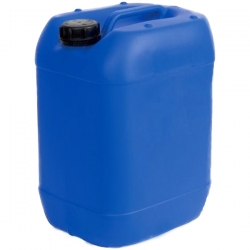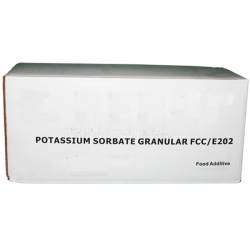No products in the cart.
Active filters
E330 - Citric Acid
Citric Acid is a tricarboxylic acid found in citrus fruits. Citric acid is used as an excipient in pharmaceutical preparations due to its antioxidant properties. It maintains stability of active ingredients and is used as a preservative. It is also used as an acidulant to control pH and acts as an anticoagulant by chelating calcium in blood.
E270-LACTIC ACID
Lactic acid is utilized in the food industry as an additive (E270) serving as an antioxidant, acidifier, or flavor enhancer. It also exists in the form of salts: sodium salt (E325), potassium salt (E326), and calcium salt (E327). These salts are in powder form and are water-soluble. Lactic acid acts as a bacteriostatic agent, particularly against pathogenic bacteria such as Salmonella or Listeria, and also has a water activity-depressing effect.
Lactic acid is an organic compound, naturally forming in muscles during intense exercise to produce energy. It is also present in wine, dairy products, and certain vegetables after fermentation.
DEXTROSE
Anhydrous dextrose does not contain water and is produced in crystalline or powder form. Dextrose, like fructose and glucose, is a monosaccharide also known as a simple sugar.
Monohydrate dextrose is another name for glucose, which is a monosaccharide sugar.
E1200-dextrose (Polydextrose) Thickening Additive, a polymer of glucose and sorbitol, is produced from glucose, sorbitol (E420), and citric acid (E330). In the human body, it behaves like dietary fiber.
FRUCTOSE
Fructose is a simple sugar naturally present in fruits and honey. It is also manufactured in the industry and available on the market as a sweetening agent.
E460(i) - Microcrystalline Cellulose
Microcrystalline Cellulose is a term used to refer to refined wood pulp and is used as a texture agent, anti-caking agent, fat substitute, emulsifier, extender, and filler in food production.
E414 - Acacia/Arabic gum
Gum arabic is extracted from the acacia tree, primarily cultivated in Africa, the Middle East, and certain parts of Asia.
Its main function is to act as a thickener, stabilizer, and emulsifier in foods and beverages. It is used to enhance the texture and viscosity of products.
E160A - Carotenoids
Carotenoids are a group of natural pigments found in many fruits and vegetables. They are classified under the code E160A as a food additive.
E202-POTASSIUM SORBATE
Potassium sorbate (E202) is a potassium salt of sorbic acid. It is commonly used as a food preservative to inhibit the growth of molds and yeasts, thereby helping to extend the shelf life of foods.
E210 - Benzoic acid
Benzoic acid is a commonly used food preservative, classified under the code E210.
E200-SORBIC ACID
Sorbic acid is an additive used as an antifungal agent and as a preservative (E200) for fruits and vegetables. Therefore, it can be found in various food products based on fruits and vegetables (yogurts, cider, etc.) as well as in light mayonnaises and margarines.
E302-CALCIUM ASCORBATE
Calcium ascorbate (E302) is a calcium salt of ascorbic acid, also known as vitamin C.
SODIUM ASCORBATE
Sodium ascorbate is a potent antioxidant; it is widely used in the food industry for food preservation.
E306-TOCOPHEROLS
E306 corresponds to vitamin E of natural origin. It is a fat-soluble antioxidant. It mainly preserves fats, coloring materials and vitamins from alteration by oxygen.
Xanthan Gum
Xanthan gum is a polysaccharide obtained from the action of a bacterium, Xanthomonas campestris. It is soluble in cold water and is used as a food additive under the code E415 for its thickening and gelling properties to modify the consistency of food.
SODIUM PROPIONATE
Sodium propionate (E281) is a sodium salt of propionic acid, a carboxylic acid. It is used as a food additive in the food industry, primarily as a preservative agent to inhibit the growth of molds and yeasts, thereby extending the shelf life of food products.
E282-CALCIUM PROPIONATE
Calcium propionate (E282) is a calcium salt of propionic acid. It is used as a food additive in the food industry for its antifungal and antibacterial properties, thereby helping to extend the shelf life of food products.

































































